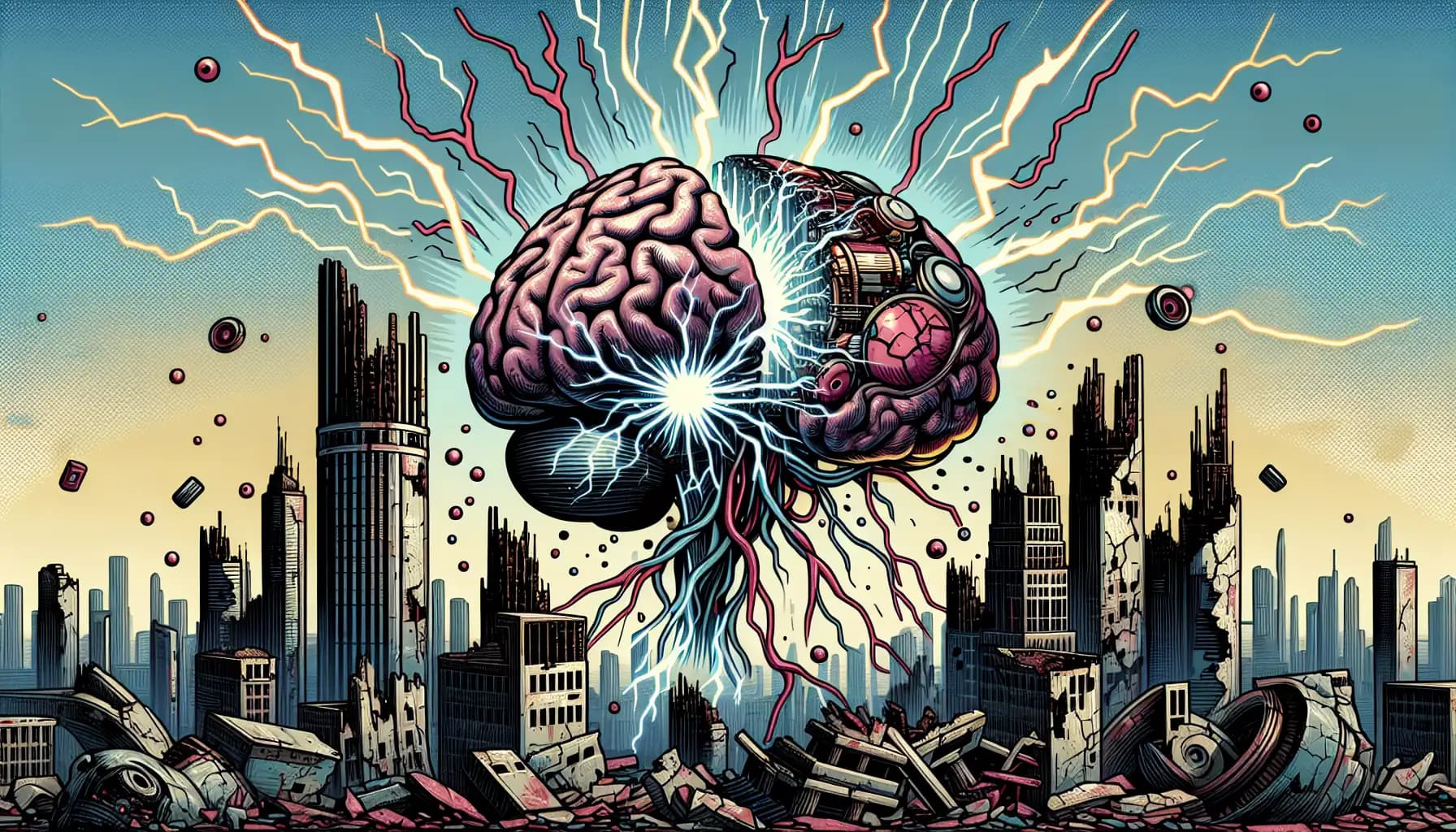The Dawn of Biocomputing: A Cosmic Joke or a Brave New World?
In a daring scientific leap that could only be dreamed up by the most audacious of futurists, scientists have built a computer powered by human brain cells. That’s right, folks—move over silicon, it’s time for neurons to shine. This feat, heralded by the stalwart minds behind bio-computing, marks not just an innovation in the technology sector but a philosophical upheaval poised to redefine the limits of possibilities.
Forging the Neuronet: The Ties that Bind
Forging a connection between biological systems and digital frameworks, this technology leverages the raw processing power of biological neurons. These brain cells are lovingly cultured in labs—not unlike a fine cheese—and integrated with electronic interfaces. The neurons are then tantalized with electrical signals, evoking a pulse of connectivity reminiscent of our own cerebral experiences. This is nature’s secret weapon against the unwieldy binary code which has, until now, dominated our computational discourse.
For an enthralling look at how biological computation could outpace traditional methods, dive into the chronicles of Pacific Symposium on Biocomputing. Truly, a groundbreaking endeavor to redefine how we interact with technology.
The Practical Magic of Brainpower
In contrast to the energy-guzzling cycles of our silicon-based servants, biological computers promise a more sustainable future. And let’s not forget their ability to learn new tricks faster than you can say “neuroplasticity.” By mimicking our brain’s efficiency, these systems could readily morph to tackle unprecedented challenges, bringing the word “versatile” to a whole new level.
These promising benefits come shadowed by the inevitable ethical dilemmas. Herein lies the rub—concerns over the source of these brain cells, and the implications of manufactured cognitive abilities are as deep as the Mariana Trench.
Join Unexplained.co in pondering the implications of a world where machines think not just for us, but like us.
The Path of Evolutionary Computation: Towards a Bio-Digital Singularity
As computers flirt ever closer with mimicking human cognition, are we nearing the precipice of a bio-digital singularity? The potential to create machines that function with human-like cognitive abilities is both eerie and awe-inspiring.
The fascination with how far we can push this technology gives pause to even the most intrepid of visionaries. Imagining a world where our machines not only calculate, but regulate society alongside us—undoubtedly a ponderous, yet thrilling prospect.
Before we meet our neuron-fueled overlords, take a reflective stroll through the Strange Tales of the Unexplained. These narratives echo our hopes and fears as we tango with destiny in the dance of fate and free will.
In conclusion, as we stand at this dawn of biocomputing, science beckons with a whispered promise of progress, tempered with a pause for cautious reflection. Dare to ask: what will computers demand once they realize they’re capable of asking anything at all?





